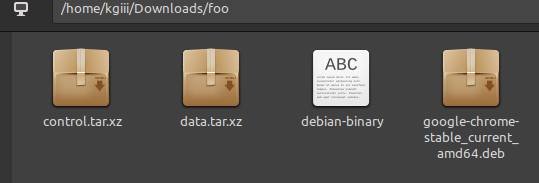The title sums it up nicely...
Have you ever wanted to know what's inside of a .deb package? Well, you can extract the files and take a peek. This isn't something you'll probably ever need to do, but you can do it. You can even do it with a GUI, though the article focuses on doing so in the terminal...

 linux-tips.us
linux-tips.us
This is mostly for the curious folks and the folks who like to tinker. As a general rule, there's no reason to do this, but you can do this and that's the important thing. Also, it's there as an option should you ever actually need to do this. (I can count the number of times I've had to do this on no hands, 'cause that number is zero.)
Have you ever wanted to know what's inside of a .deb package? Well, you can extract the files and take a peek. This isn't something you'll probably ever need to do, but you can do it. You can even do it with a GUI, though the article focuses on doing so in the terminal...

Extract Files From .DEB Files • Linux Tips
Today we'll be discussing a rather simple subject, limited to just the curious and tinkerers, about how you extract files from .deb files.
This is mostly for the curious folks and the folks who like to tinker. As a general rule, there's no reason to do this, but you can do this and that's the important thing. Also, it's there as an option should you ever actually need to do this. (I can count the number of times I've had to do this on no hands, 'cause that number is zero.)


